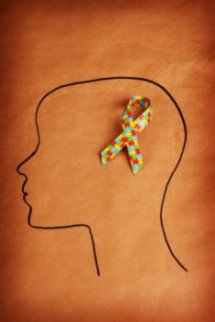What is cognitive behavioral therapy and how could this help me?
By Ashlea Johnson, LCSW
Summer is upon us and at Summit Mental Health Services, we often have patients enter therapy during this time of year because their schedule is more flexible during this season. It is not any surprise that a large portion of any private practice’s patient population is seen for anxiety. We live in an anxious society and a sensationalizing media in this humble writer’s opinion promotes that issue for all of us. Nevertheless, for whatever the reason, these folks find their way to our door to work through some of these issues in hopes that when the schedule bulks up again they will have more tools to utilize to keep anxious thoughts at bay.
One tried and true method of improving symptoms of anxiety and depression is cognitive behavioral therapy (CBT). By using this technique the therapist supports the patient as they learn how their thoughts, feelings, and actions interplay, creating the reality that causes them stress. It is a circular flow that is at work in our everyday life, whether we realize it or not. For instance, if our activating thought is “I can’t handle this”, then we feel overwhelmed and that can trigger a multitude of unhelpful physiological responses, and we act/behave irritated, tearful, fearful and are unable to experience feeling in control of our emotions. However, if that same person harnesses their power to recognize that thoughts are not facts and fights their way through cognitive change, they can reframe that activating thought to something more effective like, “I can handle this”, repeatedly stating that to themselves as a mantra. They can tune into their physiology and focus on deep breaths that allow blood flow and oxygen to maximize their problem solving abilities, and they can appear outwardly calm in a high demand situation that previously terrified them, such as public speaking, managing people at work, facing conflict with a loved one, etc.
CBT also helps us identify thought distortions that hinder objective thoughts. Catastrophizing leaves us expecting disaster, even if there is no evidence to support that thought- remember that thoughts are not facts. They are simply signals sent from our brains. Another common distortion is personalization. In personalization, a person believes that another individual’s behavior is the result of that individual’s reaction to him or her. Maybe your boss just had a fight with her husband, comes in to the office, and grunts as she walks by you. A person suffering from anxiety may personalize that interaction and internalize that as a rejection by the boss- when in actuality the boss is having a bad day completely unrelated to her staff. A good therapist trained in CBT will walk with patients through the process of identifying distortions and creating more reality based thought patterns through dropping in cognitive strategies for coping.
The other reason that CBT is so effective is that it acknowledges the role of behavior in forming our mental health state. One of the fastest ways to become and maintain a depression is to be socially isolated- not interacting with people. The interaction with others is one behavior that research shows reduces depressive symptoms or the likelihood of depression. Similarly, for a person with social anxiety who is working on coping with people all year in college, a summer spent working from home on their computer without daily social interaction is a bad idea. The behavioral strategies that he learned and utilized to feel successful in stressful situations are lost over the time that he is not practicing them. His learned behavior during the school year that promotes social success leads to thoughts of being successful, which creates an emotional response that is positive. If you ever heard of “fake it ‘til you make it” or “practice for the life you want”, those sayings relate to behavioral practice that leads to learning the skills that create a positive emotional experience.
So cheers to the brave children, teens, and adults that recognize their fears and face them head on- the clinicians at Summit are ready to help you get there. CBT is one of the many tools we use to get our patients on the road to success!
Summit Mental Health Services- Helping to navigate life’s peaks and valleys.
/ June 4th, 2016 /

